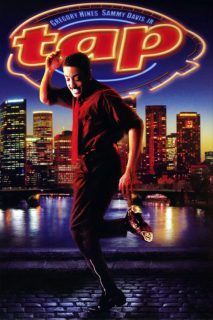
- Year: 1959
- Released: 16 Nov 1959
- Country: France
- Adwords: Nominated for 1 Oscar. 10 wins & 7 nominations total
- IMDb: https://www.imdb.com/title/tt0053198/
- Rotten Tomatoes: https://www.rottentomatoes.com/m/the_400_blows
- Available in: 720p, 1080p,
- Language: French, English
- MPA Rating: Not Rated
- Genre: Crime, Drama
- Runtime: 99 min
- Writer: François Truffaut, Marcel Moussy
- Director: François Truffaut
- Cast: Jean-Pierre Léaud, Albert Rémy, Claire Maurier
- Keywords: coming of age, paris, france, delinquent, semi autobiographical, skipping school,
 | 8.1/10 |
The 400 Blows Storyline
In Paris, early-teen Antoine Doinel always seems to be in trouble. He has a short attention span and is easily distracted, which leads to him doing poorly in school. Some of his problems stem from his home life with his mother, Gilberte Doinel, and his stepfather, Julien Doinel, who is the only father he has ever known as Gilberte and Julien married when Antoine was an infant. When Julien and Gilberte aren’t working, they leave Antoine alone to fend for himself. And even when they are home, they are often arguing and their parenting is inconsistent, leading to Antoine having no clear boundaries. On the most part, Antoine truly believes that his mother does not love him. Those issues for which he is blamed are not always his fault, and many of his contemporaries just don’t get caught as often as Antoine seems to get caught. Even when Antoine tries to do the right thing, he often is not given credit for his efforts, or his efforts lead to a bad result. The former issue is especially prevalent at school, where his teachers just believe that his school work will not be worth a passing grade. In general, punishments have been ineffective in curbing his behavior as he just rebels more against them. Antoine is often supported and/or egged on in his activities by his best friend René, who often skips school with him. Unless something drastic changes in Antoine’s life, he is destined down a path that will lead to nothing good, which is more problematic as he gets older.
The 400 Blows Play trailer
The 400 Blows Photos



The 400 Blows Torrents Download
| 720p | bluray | 832.11 MB | magnet:?xt=urn:btih:2AF45327F162745374F51972C4B330961682CE93 | |
| 1080p | bluray | 1.58 GB | magnet:?xt=urn:btih:EFD06F3668A6BC8D47F960C4A16B25C9CBB0EFF2 |
The 400 Blows Subtitles Download
| Brazilian Portuguese | subtitle Os | |
| English | subtitle The.400.Blows.1959.720p.BluRay.x264. | |
| English | subtitle The | |
| English | subtitle The 400 Blows YTS.am 1959 | |
| Greek | subtitle The.400.Blows.1959.720p.BluRay.x264. | |
| Spanish | subtitle the 400 blows 1959.1080p.BluRay.x264- |
The 400 Blows Movie Reviews
Deserved Truffaut Classic Benefits Significantly from Criterion’s New DVD Package
As the seminal work of the French New Wave, the 1959 directorial debut of 27-year old Francois Truffaut has such a vaunted reputation that the final film is bound to disappoint. However, the pristine print that comes with the new Criterion Collection DVD really makes me realize what a brave and emotionally resonant film he made ostensibly about his own troubled adolescence. It’s worth seeing twice – once for the film itself and a second time to listen to the newly recorded commentary by Truffaut’s childhood friend Robert Lachenay (the true-life inspiration for Rene in the film). Speaking in French but subtitled in English, he provides insights into the story and context of the film that no film scholar or even production associate could possibly provide. As a point of comparison, listen to the by-the-numbers commentary by film scholar Brian Stonehill (recorded back in 1992), which is thoughtful and well researched but devoid of the human factor.
The film’s title comes from a French colloquialism that translates into “raising hell”, an appropriate reference since the story focuses on a thirteen-year old hellion named Antoine, living in a poor section of Paris and neglected by parents downright arrogant in their dysfunctional nature. Antoine consequently lives a street urchin’s life as he lies to people in authority – his parents, his teachers, and the police – since he admits rather sadly that the truth doesn’t make any difference. Truffaut tracks Antoine’s life through a series of dispiriting episodes that ultimately lead him to be sent away to a reformatory after he gets caught returning a stolen typewriter and his mother and stepfather tire of their responsibility over him. To Truffaut’s immense credit, the film feels stark and naturalistic without resorting to dramatic manipulation, and he finds the ideal Antoine in Jean-Pierre Leaud, who brings out the confusion, angst and wandering attention of his character in realistic terms. He is especially impressive in an apparently improvised scene where he is interviewed by the school authorities about why his life has come to this. It is heartbreaking to see how bleak his life becomes, yet Leaud imbues the incorrigible, often intolerable side of Antoine with fervor.
There are several interesting extras included with the 2006 DVD package starting with two separate interviews with Truffaut, the first a year after the film’s release discussing he film’s impact and the second five years later when we see the filmmaker in a more reflective mood about his cinematic influences. Leaud is featured in 16mm screen test footage where his naturally ebullient personality emerges and then after the 1959 Cannes Film Festival where puberty has apparently kicked in and then in 1965 as a comparatively reserved twenty-year old. The screen test of Richard Kanayan (who has a minor role as a schoolmate) is amusing for his Satchmo-inspired rendition of “When the Saints Go Marching In” and his eerie resemblance to Fantasy Island’s Tattoo, Herve Villechaize. Be forewarned that the film is relentlessly downbeat, but Truffaut’s emotional investment and consummate abilities as a filmmaker, even at this stage of his career, make this essential viewing.
very good but not great
I have seen this movie twice. The first time, I thought it was an okay picture. However, because it is such an important French New Wave film and had a big impact on future projects and because so much positive stuff has been written about it, I thought I’d give it another try. Well, it did improve some with the second watching–particularly since I have also seen the rest of the “Antoine Doinel” films. But, was it “great”,…not really, though it still was a very very good film. There is very little negative about it other than the occasionally poor sound track. As many New Wave films are supposed to have a “home-made” quality about them, much of the time this wasn’t a problem. But, there were times when the amateurish quality of the music was distracting. Also, a smaller complaint was the abrupt ending, though this is only a small complaint since the director returned to his alter-ego in follow-up films. When all seen together, now THAT is a fascinating thing-and something I recommend you try to do if you see “The 400 Blows”.
A masterpiece of French cinema
Francois Truffaut makes his feature debut with this French masterpiece; the story is largely autobiographical but also shows a grim and authentic of troubled adolescence. The film is very well made considering how mere the budget was at the time, the cinematography and scenery are both striking and throughout you can see influences to Jean Vigo, Jean Renoir and Italian neoralism. The music just adds to the atmosphere, the direction is superb and the finale is very audacious. The writing is thoughtful and poignant, and this film boasts a superb lead performance. Jean-Pierre Leaud conveys both mischief and vulnerability in his role, and he does so effortlessly. All in all, c’est magnifique! 10/10 Bethany Cox



